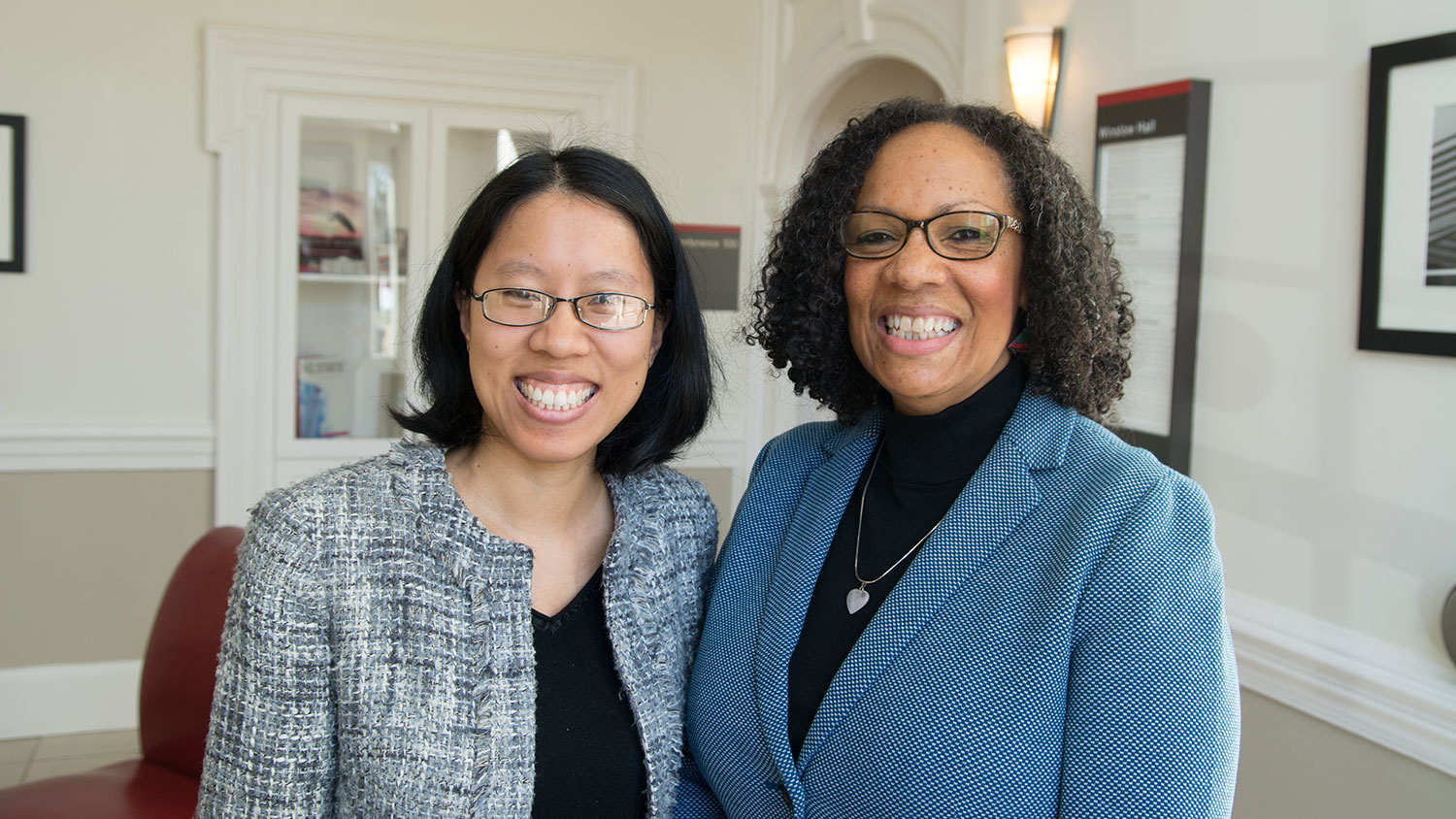NC State NCBI Chapter Affiliate Grows into National Leader

The National Coalition Building Institute is an international organization that serves to train community organizations, K-12 schools, college and university campuses, corporations and law enforcement in diversity, equity and inclusion.
NCBI’s core principles are evident in the titles of their key publications: Building Hopeful Environments to Welcome Diversity, Healing Ourselves to Change the World, Becoming Effective Allies, Empowering Leaders to Lead, Changing Hearts Through Stories, Skills Training Leads to Institutional Change, Sustaining the Work requires On-Going Support, and Leaders Deserve to Be Treated Well.
At NC State, NCBI seeks to educate students and employees about issues of discrimination, harassment, prejudice and diversity. A national leader among NCBI campus affiliates, NC State was invited to present “What Comes After the One-Day Workshop” at the 24th Annual NCBI Campus Conference hosted by the University of Iowa last fall.
NC State NCBI Team Leaders Beverly Jones Williams and Joy Tongsri attended and presented at the conference. Williams, director of training and education in the Office for Institutional Equity and Diversity, helped establish NC State’s NCBI chapter in 2001. Tongsri, associate director of the Park Scholarship program, has worked with NCBI since 2006 and has been a part of the leadership team since 2008. Read our interview of their experiences at the national conference.
What was the significance of NC State attending the NCBI Campus Conference?
Beverly Williams: We try to send at least two or three people each year. It provides development for the teams; there are NCBI teams across the United States and even in other countries, in communities, chapters and businesses, but the ones that are at universities are called campus affiliate teams. The campus conference is an opportunity for people who are on those teams to come together and get more development around the principles and understandings of NCBI. The people that we send to the conferences come back to NC State and share the information that they gained with the rest of the campus team. It’s a way for everybody to grow, build and connect. Our team is made up of volunteers who have other jobs at the university who are committed to doing this work. They do it on top of their work. Going to conferences helps us support our volunteers and give them professional development.
NC State gave a presentation at this year’s campus conference. What were the main points of your presentation?
Joy Tongsri: Some of the things that we talked about were related to what we’ve done on campus that go beyond the one-day NCBI workshop, including how we’ve responded to different situations on campus related to diversity issues, mistreatment, misunderstanding and conflict. We talked about how we’ve been integrated into the curriculum at NC State – we have an NCBI-based class for undergraduates (USC 240: Leadership and Coalition Building in Diverse Communities is a three-hour, semester-long class.) We also talked about the principles of NCBI and how we’ve worked to educate the campus on these principles because of their relevance outside of the workshops. And, we had participants think about specific goals they want to set for their campus – meaning, “Now that we’ve discussed all these ideas, how do they apply to your individual campus? What can universities do to bring back some of these ideas and implement them?’
BW: The NCBI workshop is a very interactive, facilitated experience. Individuals who participate don’t just listen to someone present; they’re engaged in activity so that they are processing, thinking and relating the information to themselves. The participants set some exciting goals for what they want to do this year. In addition to the one-day workshop in which NCBI trains facilitators to present, we have a controversial issues workshop called “Leading Diverse Groups through Conflict.” A lot of campuses don’t do that, so we talked about that as well.
What do campus teams gain from the workshop or presentations?
BW: The team gains a better understanding around diversity. They develop different perspectives as well as skills for advising, interacting, and helping in conflicts. Facilitators gain awareness that different perspectives exist and learn the value of diversity and inclusion. We work on skills for coalition building, creating a safe environment for sharing and being open to learning from other people’s stories. They learn about prejudices and develop a deeper understanding of other groups.
What’s currently happening with NCBI on our campus?
BW: We have monthly team meetings to practice the workshop, skills around the workshop to develop ourselves and to gain more understanding about issues of diversity, because you never ‘arrive’; you are never done working. We are always working to build our skills. At today’s meeting, we’ll be sharing the development that Joy and I gained from the conference with the rest of the team. We’ll be talking about “Allyship Through a Racial Lens.” We’ve also done workshops during retreats for the Career Ambassadors and Interfaith. The groups were really engaged and the workshops sparked a lot of good conversation.
Tell us more about volunteering with NCBI at NC State.
JT: We ask for a two-year commitment because for people to become a part of the team, they have to go through the workshop. We want to make sure that they are aware of what NCBI is about and have some awareness of the philosophy and principles. There’s an application process for applying – it’s open to all faculty, staff and students.
Austin Butler is a communications intern in the Office for Institutional Equity and Diversity. She is a senior majoring in science, technology and society.
- Categories:


